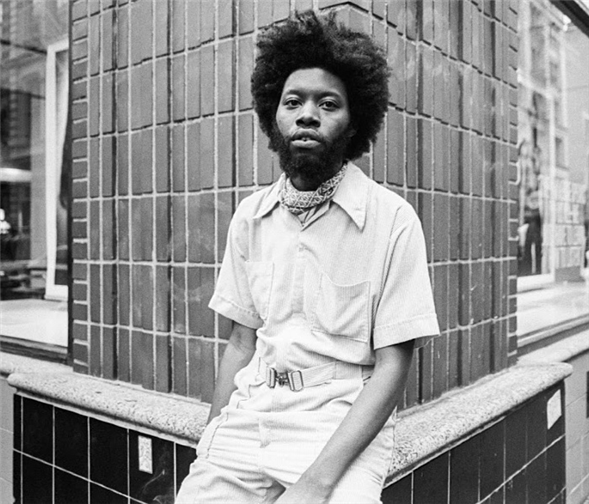Translate Page

After a successful run at New York Theatre Workshop last fall, Slave Play is transferring to Broadway for a limited run from September 10 to January 5, 2020.
How playwright Jeremy O. Harris is taking NYC's theatre scene by storm
---
"When my mom was my age, she was going through a divorce, had two kids and was working three jobs," says 29-year-old playwright Jeremy O. Harris. "So having two productions in New York while getting an MFA feels like a cakewalk because those things are very cushy."
A year ago, Harris was in his second year of grad school, wondering what a masters in playwriting at Yale might bring. He'd already had some buzz, but mainly as an actor, fierce fashion plate and social-media maven. But this season he makes his professional debut as a dramatist with a pair of high-profile productions: Slave Play, currently running at New York Theatre Workshop and "Daddy", a co-production between the New Group and the Vineyard Theatre which bows in February. Plus he's penning a screenplay and just won the 2018 Paula Vogel Playwriting Award, all while (mostly) keeping up with his studies. "I feel like I'm getting a hyper degree," he says.
No wonder -- he's in such high demand that he frequently hops from New York (for theatre) to Florida (for his film Zola) to "Kween Palace" (his self-anointed residence at Yale). But regardless of his location or project, recurring themes unite his trenchant works.
The intersections of sexuality and race permeate Slave Play and "Daddy." According to Harris, who is African American and gay, both plays stemmed from "a burning desire to answer a question: Where does the entanglement of whiteness and blackness, from the history of black oppression in America, live in my body? My plays delve deeply into myself. It's like I cut myself and bleed out a bit, and Slave Play is what needed to bleed all the way out."
Slave Play explodes the romances between three interracial couples in all their discomfort, while "Daddy" is a searing examination of the affair between a young black artist and middle-aged white collector (who will be played by Tony winner Alan Cumming). The works would be rated NC-17 if they were movies as they zero in on incendiary relationships complicated by racial dynamics, a topic that has interested Harris since long before grad school. In fact, he submitted an earlier iteration of "Daddy" as part of his MFA application and was encouraged to continue exploring these themes at school. "I was told during my interview that I'm overflowing with ideas and need time to channel them," Harris recalls. "The funding that Yale gives you to build out an idea is not found at many MFA programs -- you get to workshop three productions during your three years."
He presented Slave Play as his second-year show and now two-time Obie winner Robert O'Hara is helming its New York premiere, granting Harris a master class in direction. "Watching Robert work is something I can't get at Yale," Harris says. "I can whisper a note to Robert, where if I did that in school it might be disruptive to someone's learning. We're all learning to be playwrights while our classmates are learning to be directors. But Robert knows inside his brain: that staging works and that staging doesn't -- now let's get it done."
In addition to directing, O'Hara is also a playwright known for audacious works that tackle race and queerness, such as Bootycandy, Barbecue and Mankind. While Harris' plays are equally bold, they mimic more traditional forms. "My plays have maintained their rawness, but the structures are working in a formal idiom of major shows that happen all the time," Harris says. "One of my criticisms of Yale is that they make their students producible, but you can't see Yale Rep shows every year and not fall in line in some way, shape or form. In class we devour our dead over and over, so all we regurgitate is that. I came to school wanting to make a play that looked like Half Straddle shows or those that are happening in Europe."
That's why Harris is using his final year at Yale to experiment with his very meta thesis project, YELL, about "being in a white institution and being told I'm excellent by white institutions" he says, adding that he plans to "diversify my formal language" with the show. The opportunity to try new things is one of the main reasons he chose Yale in the first place, and also because "no school made my mom as happy."
To read about a student's experience at Slave Play, check out this post on TDF's sister site SEEN.
---
Follow Billy McEntee at @wjmcentee. Follow TDF at @TDFNYC.
Top image: Jeremy O. Harris. Photo by Andre Wagner.
TDF MEMBERS: Go here to browse our latest discounts for dance, theatre and concerts.